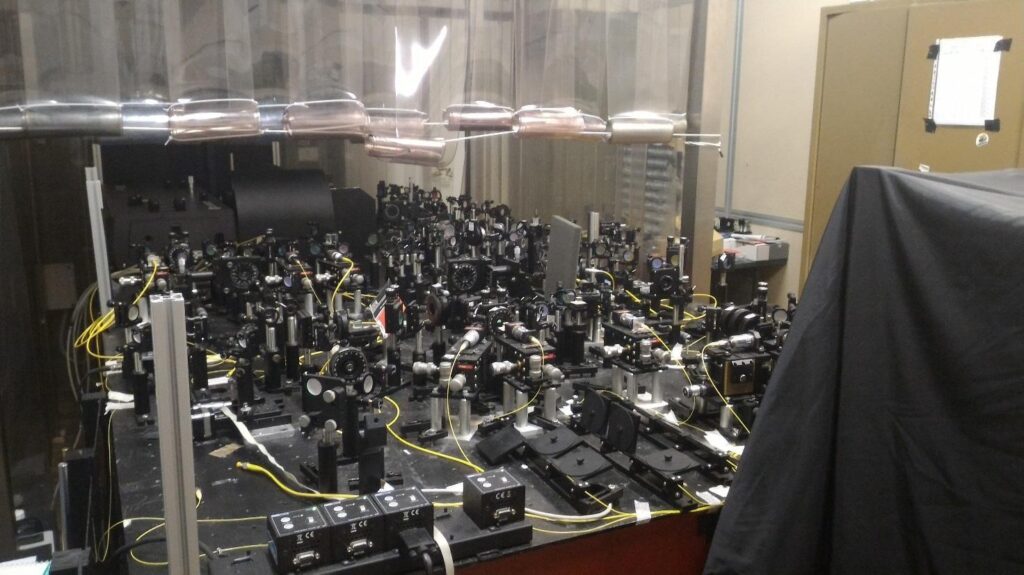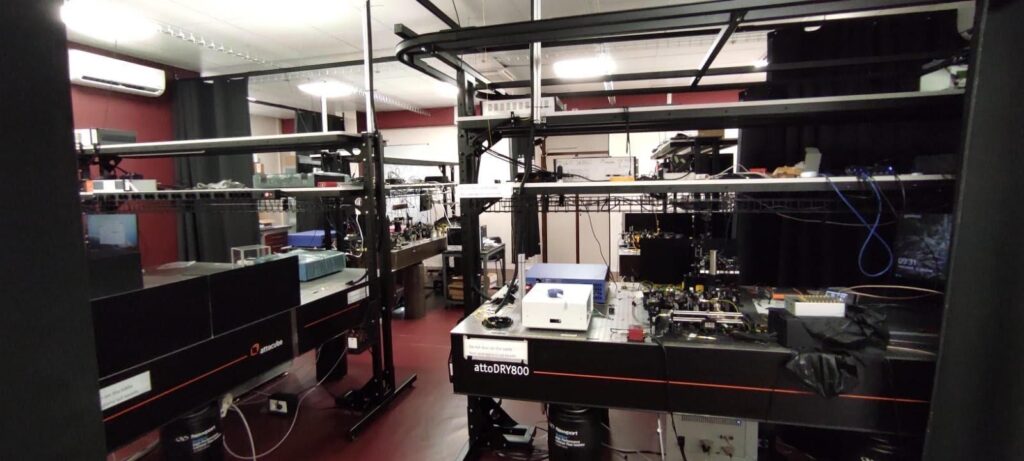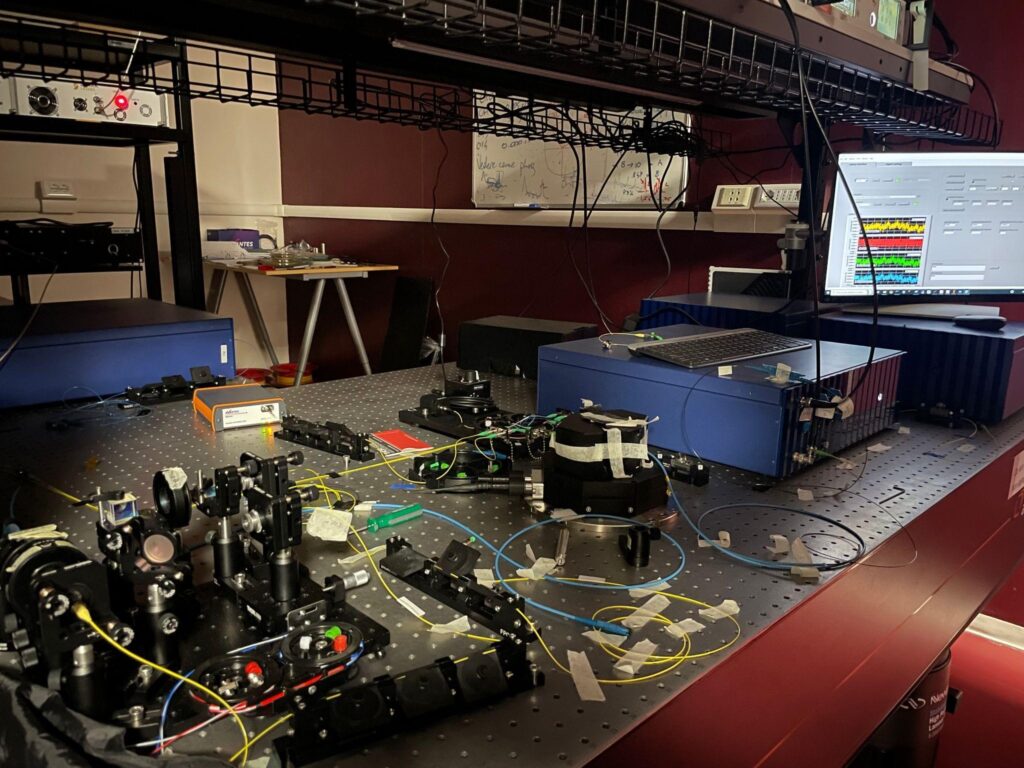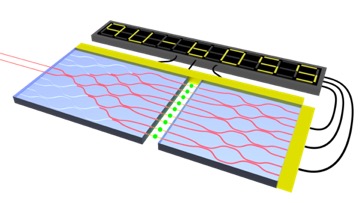The Quantum Computing Lab is dedicated to the study and experimental implementation of
computation protocols with photonic systems. Here, in fact, the first experimental realization of one of the most significant quantum computing protocols, namely Boson Sampling, was implemented.
This sampling makes it possible to demonstrate the quantum advantage over classical computation.
To date, research is focused on extending this computational problem to new regimes, increasing
the dimensionality of the processed states and its possible applications. We move a step forward in
this direction by demonstrating the adoption of a novel compact and reconfigurable 3D-integrated
platform for photonic Boson Sampling.
This laboratory has been recently upgraded and now hosts three quantum dots working in two
different excitation regimes thus covering a new and highly increasing research field.
Semiconductor Quantum Dots (QDs) have emerged as a platform to overcome the natural
limitations of spontaneous parametric down-conversion (SPDC) sources which are the intrinsically
probabilistic nature and the trade-off between brightness and purity of the produced photons.
Acting as artificial atoms, when resonantly pumped with pulsed lasers, QDs can generate highly
indistinguishable single photons with high brightness in a nearly deterministic fashion.
Lab Equipment: In order to generate many-photon states, necessary for the development of
computational protocols, new photonic sources i.e. quantum dots have been implemented in our
facilities. In this laboratory there are three sources that require the use of 4 K cryostats and vacuum
pumps to optimize the emission rate. There is also a dSpectrum Analyzer to measure the spectrum
of the generated photon states. In order to correctly perform the experiments running in this
laboratory, more than 35 single-photons detectors working at 780 nm are exploited. Two
time-taggers with 32 channels each and several integrated devices are also included in this
laboratory.
Research:
Boson Sampling with integrated photonics
Quantum dots
Active Projects:
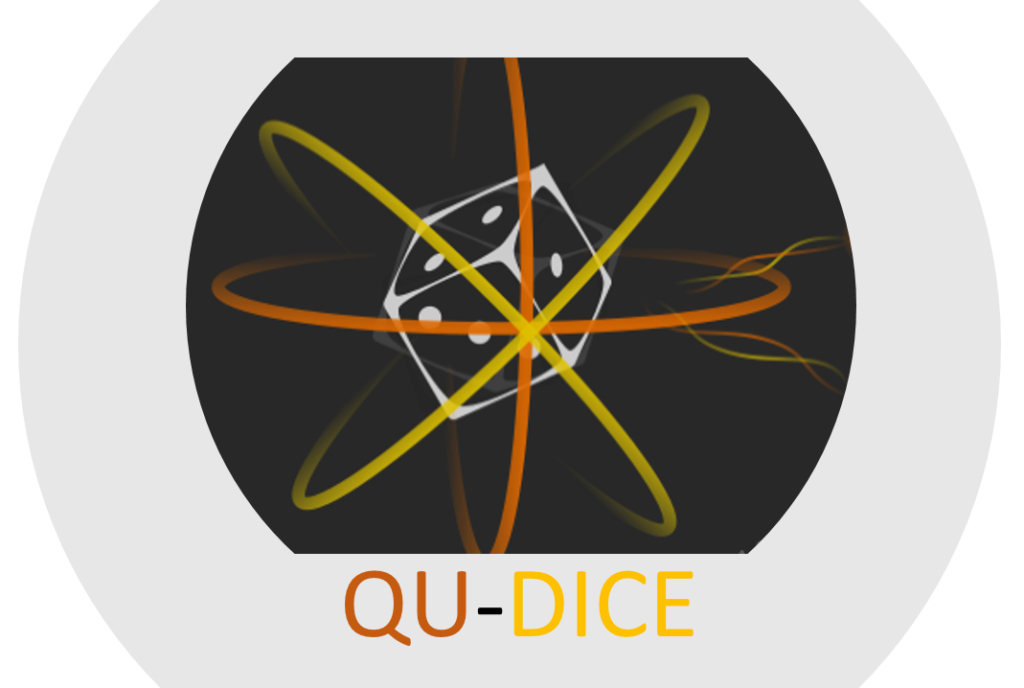
QU-DICE – QUantum ranDomness and sImulation proCEssing via non-linear boson sampling
FARE Ricerca in Italia, Ministero dell’istruzione e del merito
